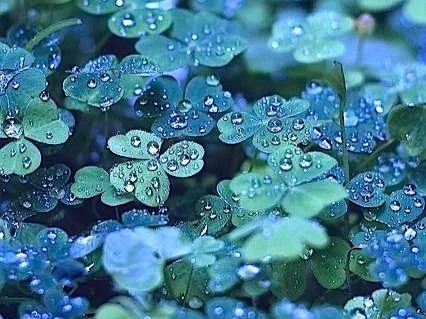WATER - THE ESSENCE OF LIFE (& TIPS FOR WASHING FRESH PRODUCE)
Water is the essence of life. It is the most important substance on earth for humans, as not only does it sustain our bodies, it also nurture’s the planet’s ecosystems.
We can live for approximately 3 weeks or more without food but only about 3 days without water.
And yet, in spite of a mostly plentiful supply of water (in this part of the world at least), many people are chronically dehydrated. This is partly due to diet (too much high fat/protein, salt and processed foods, which are deeply dehydrating) but also due to the fact that most people are drinking and washing in dirty water that has no structure or life. In other words, the water is dead.
LIVING / STRUCTURED WATER:
In order for water for to be properly absorbed by the cells of the body, it needs to be living and to have structure. In nature, water has a beautiful structure that is instantly recognised by our cells when we consume it, just like the water found in fresh fruits and vegetables.
This kind of living water is also found in breast milk, as well as natural springs, although the issue with springs nowadays is that the water is often picking up contaminants before it reaches a source it can be collected from.
So, not only do we need a clean source of water, we also need water to be structured. This generally means that purification or filtration is necessary to clean the water, with the addition of lemon, lime or cucumber to add structure, life and minerals.
PH OF WATER:
Spring water is usually a PH of about 6.8 – 7.2, which is the recommended PH for our bodies. When we take in water that is highly alkaline (a popular trend) it weakens the stomach acid, which is needed for healthy digestion and protection against bugs.
The body ends up having to work really hard to neutralise alkaline water, as it will not allow alkaline water to leave the stomach and intestines for the bloodstream. Our blood PH is about is about 7.2, and so, consuming water as close to this gives the body the least amount of work to do.
IONIZED ALKALINE WATER:
This should be avoided at all costs. Not only are ionizer machines really expensive, they’re also harmful, as they render the water dead, and cause a leaching of heavy metals into the water.
THE IMPORTANCE OF WASHING PRODUCE:
Often I get asked if it’s important to wash fruits and vegetables, even if it’s organic. The answer is YES, as there is no escape from the exposure to toxins in today’s world. Even our rain water is full of them! This means washing ALL produce is important and EVEN MORE IMPORTANT for conventionally grown produce.
Washing your produce in water is a good first step but is your water clean?
Step number one is to ensure you have at least one source of filtered water in your home whether it’s a counter top filter or home system filter.
Please understand that CITY MAINS TAP WATER IS NOT CLEAN.
It is chlorinated and often fluoridated (depending on where you live), and more often than not, carries a toxic load you may be unaware of including birth control, heavy metals, antibiotics, chemicals such as glyphosate (fertiliser) and more.
Step number two is to fill a bowl of clean filtered water and use any of the following to give your produce a good soak or scrub:
Natural olive soap and a vegetable scrubber
Vinegar (apple cider or white vinegar), 1 cup vinegar for every 2 cups water
Vinegar plus bicarb of soda / baking soda (1 tsp bicarb for every 2 cups of water)
Use a product called VEGGI WASH
All of the above will help to remove herbicides and pesticides, chemical residue, dust, fumes and other contaminants, as well as any bugs. If you're in a country where bacteria and viruses may be a significant issue, you can also wash your produce in low dose hydrogen peroxide (3%) for extra reassurance.
PRODUCE FROM THE GARDEN OR THE WILD:
If you grow your own produce or forage for wild foods, I suggest simply rinsing it in filtered water to give it a light wash. Yes, it may contain heavy metals from rain water and other chemicals but it is also rich in micro-organisms that the body desperately needs. These are the good organisms, the very creatures we are most depleted in that help the body manufacture its own B12. In order to preserve them, just rinse lightly. If food has travelled distances or been packaged up, these organisms are lost.
B12 is so critical for our health, so it's really worth growing anything you can, in order to maximise on these B12 producing organisms. A great place to start is to grow sprouts, which you can find out more about here in my previous post.
Wishing you much love, health and happiness,
Rebecca

